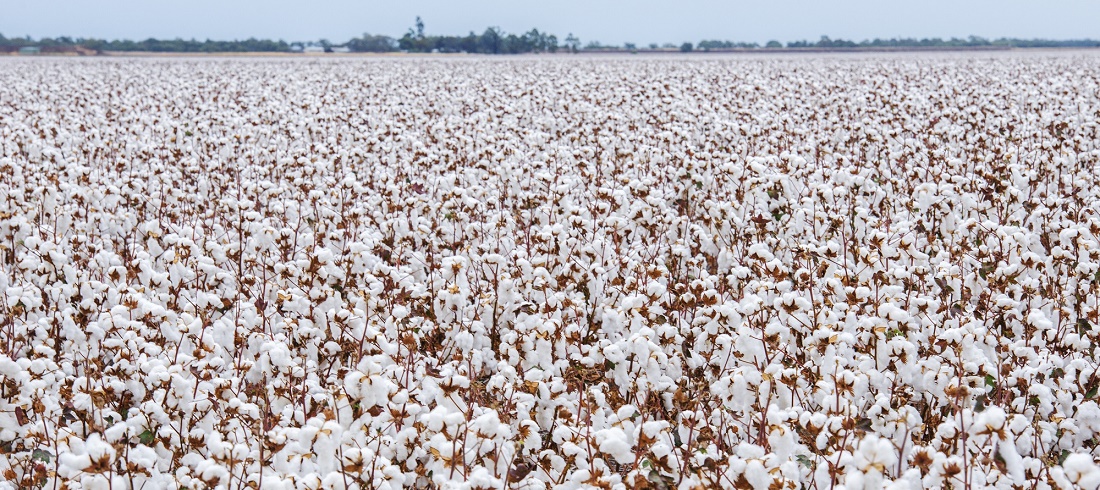
Santos Port serves as export platform for 95% of Brazil’s cotton
Mar, 04, 2024 Posted by Gabriel MalheirosWeek 202410
Brazil’s cotton exports stood at 1.6 million tonnes of cotton in 2023, according to data from the Ministry of Development, Industry, Trade, and Services (MDIC). Of this total, 1.5 million tonnes (95.8%) used the Port of Santos as its export platform, according to the Brazilian Association of Cotton Producers (Abrapa).
However, exports dipped over 10% compared to 2022 when 1.8 million tonnes were shipped. Despite the year-on-year reduction, Brazil remained the world’s second-largest exporter of cotton, behind only the United States.
The following chart shows the export volume of cotton in the top exporting port in Brazil, the Port of Santos, between January 2022 and January 2024. The data is from DataLiner.
Cotton Exports from Santos Port | Jan 2022 – Jan 2024 | WTMT
Source: DataLiner (click here to request a demo)
“The 2022/23 harvest was affected by adverse weather. As a result, we had a smaller volume available for export. The global cotton market also presented challenges,” said Abrapa President Alexandre Schenkel.
According to MDIC, the volume shipped between January and December last year generated revenue of US$3.07 billion for the country. China was the main destination for Brazilian cotton, accounting for 48% of the volume shipped last year.
Marcelo Duarte, Director of International Relations at Abrapa, noted an export surge in the second half of the year. “74% of the 2023 exports (1.194 million tonnes) occurred between July and December, topping by 24% the figures set in the same period of 2022, marking the second-best performance since 2018.
With the revenue generated in 2023, cotton was Brazil’s seventh-largest productive chain. The product accounted for 2% of the total revenue of US$167.5 billion according to the agribusiness export ranking developed by Instituto Insper.
Michel Quirino, Director of Mediterranean Logistics operating in the Port of Santos, estimates that Brazil is poised to become the world’s leading exporter of cotton.
“Likely, Brazil will become the world’s leading cotton exporter either this year or – at the latest – next year, surpassing the United States. The sector foresees growth until 2030. Meanwhile, the US is expected to decrease cultivation due to climatic conditions.”
Quirino highlighted that the Santos port complex handles around 160,000 tons of cotton each month. Cotton logistics typically last about five days from farm departure to the Port of Santos.
“We maintain a direct relationship with clients in Bahia, Mato Grosso, and Minas Gerais. Cotton is transported in bales by trucks and trains to the special bonded warehouses known as Redex, one located in Alemoa, Santos, and the other in Guarujá, and then it is stuffed into containers.”
In Santos, the cotton is handled by BTP, Santos Brasil, and DP World.
Brazil Set to Reach Record Harvest
According to data from the 5th Harvest Survey 2023/2024 by the National Supply Company (Conab), Brazil is set to achieve a 3.3 million tonnes record harvest, marking a 3.6% growth compared to the previous harvest.
This volume secures Brazil’s third-place ranking in global cotton production, with a comfortable lead over the United States, which is expected to produce 2.7 million tonnes, according to the United States Department of Agriculture.
This heightened volume was driven by a 12.8% expansion in cotton acreage at the expense of other crops.
Conab expects exports to increase by 53% this harvest, reaching 2.48 million tonnes. On the other hand, imports are expected to increase by 4,000 tonnes. These values are consistent with the market’s expectation of higher global economic growth, particularly in China.
Source: A Tribuna
Click here to read the original news piece: https://www.atribuna.com.br/noticias/portomar/santos-escoa-95-do-algodao-do-pais-de-acordo-com-associacao
-
Meat
Jul, 05, 2022
0
Pork: Brazil exports reach 83.536k tonnes in June
-
Ports and Terminals
Oct, 14, 2021
0
US companies pledge to operate extended hours to reduce supply chain bottlenecks
-
Fruta
Feb, 26, 2025
0
Government tightens rules for importing lemons from Portugal
-
Shipping
Apr, 04, 2019
0
China Navigation Company buys Hamburg Süd’s dry bulk business

